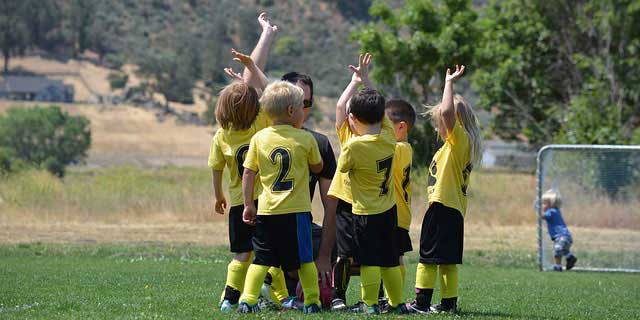


Importance of Children Going Outdoors
Playing outside is one of the greatest joys of childhood, but it serves a larger purpose than just being a way to have a good time. Spending time outdoors is a crucial part of healthy growth and development, according to the National Centre for Physical Development and Outdoor Play.
Improving your child's health and well-being might be as simple as sending them outside torecreation. Being outside is the perfect place for 'kids to be kids' with the freedom to shout, jump, run, hop or skip. The outdoors has something more to offer than just physical benefits. Cognitive and social/emotional development is impacted too. Outside, children are more likely to invent games. As they do, they're able to express themselves and learn about the world in their own way.
Listed below are some of the benefits which outdoor play offers over and above mere enjoyment-
1. While children are inventing rules for games as children like to do, this promotes an understanding of why rules are necessary. Although children are only playing to have fun, they're learning communication skills and vocabulary as they invent, modify, and enforce rules. They understandnumber relationships while they keep score and count. And they are also learning social customs as they learn to play together and cooperate.
2. We can't underestimate the value of the aesthetic development promoted by being outside. Aesthetic awareness refers to a heightened sensitivity to the beauty around us. Because the natural world is filled with beautiful sights, sounds and textures, it's the perfect resource for the development of aesthetics in young children. Children learn the most through their senses. They have animals, birds, and green leafy plants to see, hear the wind rustling through the leaves, smell fragrant flowers while touch a caterpillar or the bark of a tree or taste raindrop.
3. Young children need the opportunity to use their whole body and develop their 'gross motor skills'. It's only when they have mastered these that they will be able to control their fine motor skills, such as using a knife and fork or holding a pencil, for instance. As a result, children indulging in outdoor play can have a positive outcome in terms of development.
4. When it comes to play – especially outdoors – there is no right or wrong way. The best thing is to just get out there and see what the day holds. Not all of us feel as comfortable or confident in outdoor play or embracing nature. Start small and keep it simple. Think about the games you played as a child. Give your child the idea and let them run with it. Regularly spending time outside can lower your child's risk of anxiety and depression too.
When parents and teachers think back to their own childhoods, chances are some of their fondest memories are of outdoor places and activities. Children usually share the values of the important adults in their lives. When we show an appreciation for the great outdoors, the children in our lives will follow our lead.


